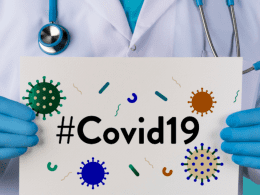About the Author
Hi there! I’m Dr. Sarah Jones, a practicing physician with over a decade of experience. The vast majority of medical professionals are dedicated to providing exceptional care. But as much as we strive for perfection, the reality is that medicine is a complex field, and mistakes can occur. Today, let’s discuss how these errors happen and what you can do to protect yourself as a patient.
Not All Mistakes Are Malpractice: Understanding Medical Error
Have you ever worried about something going wrong during a medical procedure? You’re not alone. A study published in the Journal of Patient Safety estimated that nearly one in three patients experiences a medical error during their care [1]. It’s important to understand that not all mistakes equate to malpractice.
A medical error is any unintended act or omission during medical care that may cause harm. This could range from a medication being prescribed with the wrong dosage to a mix-up in test results. It’s crucial to differentiate this from malpractice, which is negligence on the part of a medical professional that results in harm to the patient. For instance, a surgeon accidentally operating on the wrong body part would likely be considered malpractice, whereas a medication error due to a misread chart might not.
The Busy Beehive: How Systems Can Contribute to Error
Modern healthcare is a complex dance, with different specialists, nurses, and technicians working together to deliver care. While this collaborative approach allows for specialized expertise, it also introduces potential weak points. Imagine a hospital as a busy beehive – information needs to flow smoothly between different departments to ensure optimal care. However, flaws in these systems can increase the risk of errors.
For example, a report by the National Academies of Sciences, Engineering, and Medicine highlighted how inadequate staffing can lead to overworked and stressed healthcare providers, making them more prone to mistakes [2]. Additionally, unclear communication channels or confusing medical records can create situations where vital information gets lost or misinterpreted.

Communication Breakdowns: When Information Gets Lost
Clear and concise communication is paramount in medicine. A simple miscommunication between a doctor and a nurse or between a healthcare provider and a patient can have serious consequences. For instance, a patient with allergies might not be effectively screened before receiving medication, leading to a potentially life-threatening reaction.
These communication breakdowns can also occur during what’s known as “shift change,” when responsibility for a patient’s care transitions between different teams. It’s vital that all relevant information is accurately and completely passed on to ensure continuity of care and minimize the risk of errors.
The Human Factor: Fatigue and Cognitive Bias
Even the most experienced medical professionals are human. Fatigue, long working hours, and emotional stress can all impair judgment and increase the likelihood of mistakes. Studies have shown that doctors who work extended shifts are more prone to errors in diagnosis and treatment decisions [3].
Another factor to consider is cognitive bias, which refers to unconscious mental shortcuts that can influence our thinking. For example, confirmation bias can lead a doctor to focus on information that confirms their initial diagnosis and overlook alternative possibilities. Being aware of these biases and employing strategies to mitigate them is crucial for safe and effective healthcare delivery.

Empowering Yourself: Advocating for Your Safety
The good news is that you, the patient, have a powerful role to play in preventing medical errors. By becoming an active participant in your healthcare, you can significantly improve the quality and safety of your treatment. Here are some ways to empower yourself:
- Ask Questions: Don’t hesitate to ask questions about your diagnosis, treatment plan, and potential risks. The more you understand, the better equipped you are to make informed decisions about your care.
- Bring a Support Person: Consider having a trusted friend or family member accompany you to appointments. This extra set of ears can help you process information and remember important details.
- Clarify Instructions: Before leaving a doctor’s appointment, ensure you understand all instructions regarding medication, dosage, and follow-up care. Don’t be afraid to ask for written instructions if needed.
- Maintain Accurate Medical Records: Keep a personal record of your medical history, medications, and allergies. This information can be invaluable during consultations with different healthcare providers.
Asking the Right Questions: A Patient’s Toolkit
Here are some specific questions you can ask your doctor to promote clear communication:
- What are my treatment options, and what are the potential benefits and risks of each
- What are the potential side effects of this medication, and how will I know if I’m experiencing them?
- What happens if I don’t undergo this treatment?
- What are the qualifications of the healthcare providers who will be involved in my care?
- What steps are in place to ensure clear communication between different healthcare teams involved in my treatment?
By asking these questions and actively participating in discussions, you can ensure you understand your condition and treatment plan fully.
Building Trust: A Shared Responsibility
The doctor-patient relationship is built on trust. Open communication and honesty are essential from both sides. If you have any concerns about your care, voice them to your doctor. A good healthcare provider will welcome your questions and address them openly.
It’s also important to remember that healthcare is a collaborative effort. While doctors have the expertise, you, the patient, have valuable information about your own body and medical history. Sharing this information openly and accurately contributes to better diagnosis and treatment decisions.
Conclusion: Working Together for a Safer Healthcare System
Medical errors are a serious concern, but they are not inevitable. By understanding how these errors occur and taking steps to advocate for your safety, you can play a crucial role in improving the quality of your care. Healthcare providers also have a responsibility to continuously evaluate and improve systems and protocols to minimize the risk of errors.
Working together – patients, doctors, nurses, and the entire healthcare system – can create a safer environment for everyone. Remember, knowledge is power. By educating yourself and being an active participant in your healthcare, you can navigate the medical system with more confidence and peace of mind.












